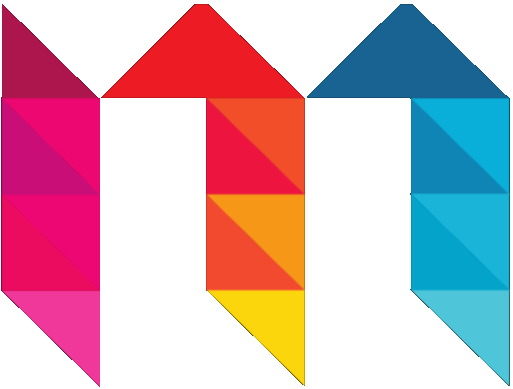Living in the Information Age
Jan 10, 2021
During my days, I consciously choose to live days without spending a lot of time using any televisions, laptops, phones or gaming devices. It's quite a contrast with a past that's not so long ago... If I look back in time, I remember quite well that when I was young, my life wasn't all about these devices.
I can remember growing up with simpler and fewer devices, and I see now that my days are being dominated by using laptops and phones for work, televisions and gaming consoles to relax with my family and friends. I also know that I'm not alone, and I see how children grow up these days being quite familiar with how devices work, not understanding how we've lived our lives before they were invented.
I'm talking about the early 90's of the last century. We had a Commodore 64 and then started having our first PCs, but back then I used them merely for playing video games. I believe mobile phones had to become mainstream by then still, the internet was yet to breakthrough.
In most parts of Europe, having access to the internet started off in the early 2000s. For me, this meant being able to access more information than ever before in a faster way. Mobile phones were becoming a standard, even more so when the iPhone was released around 2007.
If we fast-forward to the present time, we can see a massive change. Not only have there been billions of mobile phones produced, they've also been upgraded in terms of hardware and software. They've turned into everyones assistent because of the literally millions of apps that are available. A lot of content is being created, according to this infographic this totalled up 2.5 quintillion bytes per day in 2017. A staggering 90% of the worlds data was created between 2015 and 2017...
Don't get me wrong, I think there are huge benefits to having these kinds of technologies, but there are some serious dangers too, that we shouldn't forget to deal with on an individual level but also as a society.
Risk factors
There is so much information 'out there', that it can feel very overwhelming. A lot of information is literally a search away.
Apart from searching for 'common information', most of us use digital systems for our education or our job, usually these are multiple software applications that are used for different purposes. We use many communication apps these days for video conferencing as well. Apart from this, most of us have our own devices at home, including a mobile phone. Many of us are online on one or more social media platforms.
Whether personal or professional, many of the apps we use allow us to set up notifications in case "something happens". This can be an e-mail from a friend, a match on Tinder, a Facebook friend request. Regardless of how finetuned we can set this up, it is quite easy to receive bunches of notifications throughout the day. The more this happens, the more our brain starts to get used to checking all our apps. It even goes as far as needing our dopamine fix, becoming an actual addiction.
When we are working on something important, a notification can easily kill our productivity. There are many opportunities for our brain to procrastinate once we respond to the notification, and before we know it, we forgot what the important task was that we were doing before our minds got intercepted by our phones...
Another trend that we see is that because a lot (we could argue too much) information is available online, we find it harder to store knowledge in long-term memory. With deliberate practice, we obviously still can learn new skills, but with all online education platforms such as Coursera and Udemy, there is basically too much to be learned. You could say that there is more to be learned than thirty years ago, but it's up to us to decide if what we're learning is actually going to be relevant for us.
There is a one risk I would like to address here: above a certain age, it can be quite hard and overwhelming to get used to all modern technology that is around these days. While every generation has their own novel technology, never has it been so disruptive as computers, mobile phones and the Internet. The boundaries of what is possible might still be unknown for the upcoming few decades. Especially for elderly people, this is a challenge that gets exponentially harder to keep up with.
Tips
There are many things you can do about the risks mentioned above. I tried to compile a list of tips I've read, seen or experimented with myself.
- Plan in hours (or better yet, days) in which you are not using any device at all... Being completely offline might sound scary at first, but I find it essential to keep a healthy life balance.
- While enjoying breakfast together, make an agreement that devices are not allowed.
- For all devices that have a screen, check if there is a setting to reduce blue light in the evenings. The blue light that is emitted by your screen reduces the melatonin level in your body, which would normally signal that you are tired and need to sleep.
- Check if your phone allows you to schedule quiet times, so you can have time without any notifications.
- It can be convenient to charge your phone in your bedroom, but it's better to choose another spot in your house. The simplest ding at night might wake you or your partner up, and we all know that sleep helps us prepare for a new day.
- If you feel like you (or your kids) are using screens a lot, try to set screen time restrictions. These days, many phones, tablets and game consoles can be set up this way.
- When you need to focus on your work, disable all notifications. Most phones and operating systems support quiet or focus modes.
- To increase productivity in the morning, try to leave your phone untouched until you've completed your first tasks. Using your phone in the early mornings might make you go down the rabbit hole of the apps you have installed...
- If you feel that your e-mail inbox is spiralling out of control, try to find a system that works best for you.
Obviously, the list above is not complete in any way. I encourage you to find out what works best for you. A benefit of the Internet is that many people have shared their experiences and shouldn't be hard to find...

